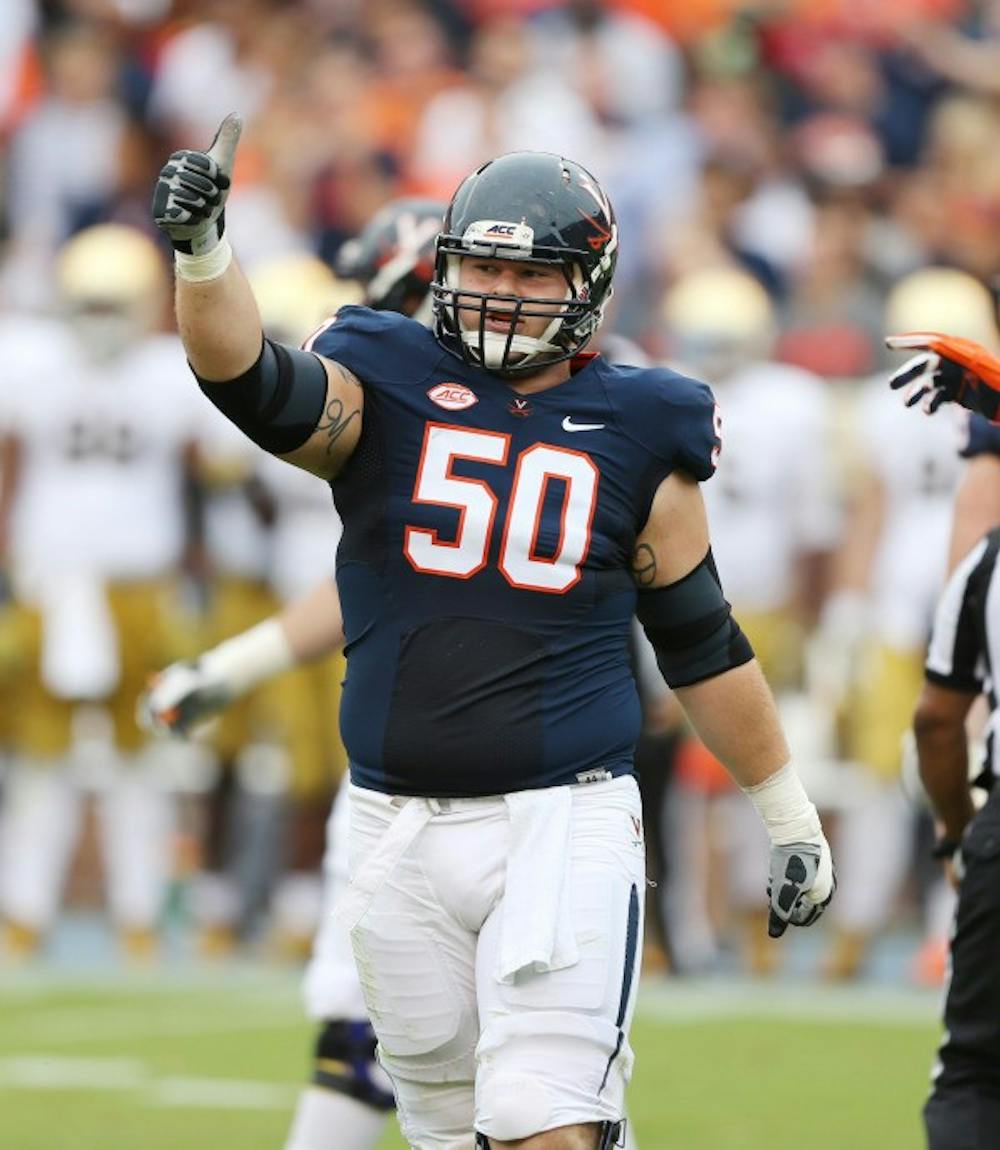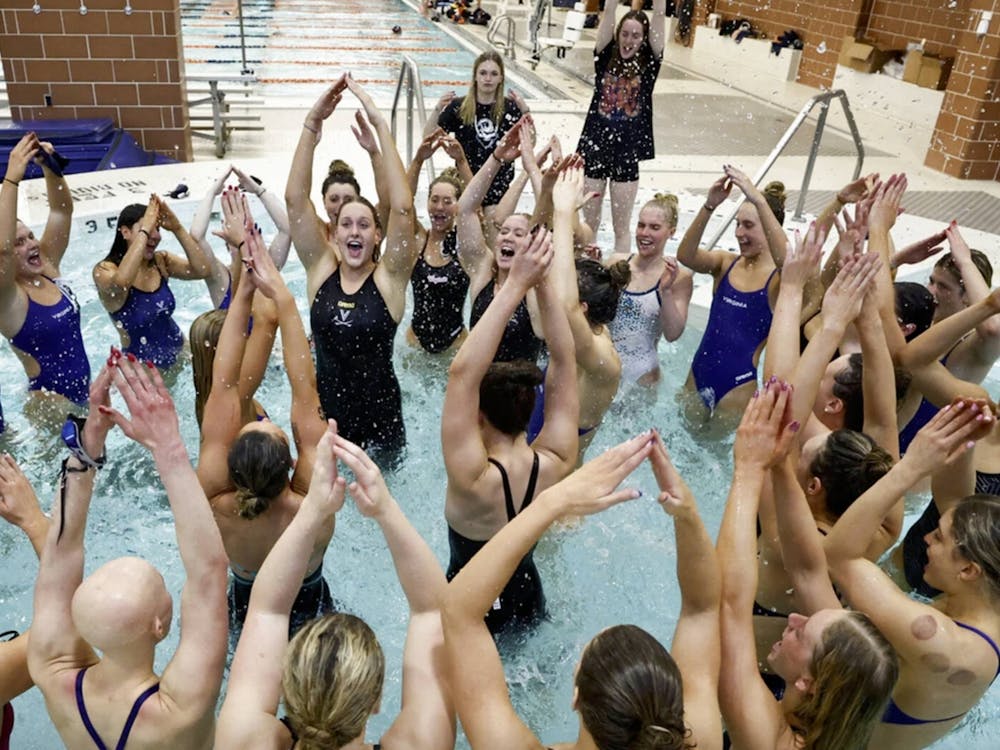Watching the Cavaliers take on Oregon last Saturday night, the difference in teams was apparent. Whether watching top running back Royce Freeman dance around Virginia defenders, or Olympic hurdler Devon Allen mimic his track triumphs in an end-zone celebration, Cavalier fans could see Oregon’s notorious athleticism clear as day.
Oregon’s strength is in skill players — their recipe for success is throwing elite athletes in as many positions as possible, and trying to run you off the field. What might have been lost, however, in the blaze of neon continually streaking past Virginia defenders, was that the Cavaliers were showing signs of developing their own strength in the trenches.
Coach Bronco Mendenhall has always said he wants to be a physical team, and one of his biggest regrets from week one was that he didn’t have enough hitting in practice, erring on the side of caution when it came to making sure the team was rested. In week two, however, physicality may well have been the Cavaliers’ greatest success.
The offensive line, maligned all summer long as inexperienced and lacking depth, came through in a huge way in Autzen Stadium this weekend. While Virginia wasn’t capable of running around Oregon’s athletes, the offensive line ensured they were able to plow through them.
Senior Albert Reid, listed as “big back” on the official Virginia depth chart, bulldozed through Oregon’s defense to a career-best night. The rest of the Cavaliers’ backs in sophomore Jordan Ellis and senior Taquan Mizzell fared well too, as Virginia’s running backs averaged seven yards a carry, a better average than Oregon had rushing on the night. The offensive line played a huge part in this.
Against Richmond, Virginia’s running game was abysmal, averaging only 1.8 yards per carry. On Saturday, the offensive line blocked so effectively that Reid was averaging 3.3 yards per carry before the offensive line even allowed him to be touched.
Pro Football Focus is an organization that grades players performance based on grades assigned by watching every play on film. By their measures, Virginia’s top five players on offense were all linemen; even the weakest starting lineman played better than any other offensive player Virginia had. In fact, the linemen were so dominant, four out of five starters actually graded higher than anyone other than Freeman on Oregon’s offense, which managed to score 44 points.
The offensive was what kept Virginia competitive, but that doesn’t mean they were flawless as a whole, as they did succumb to some pressure in the passing game. This was particularly important, as junior quarterback Kurt Benkert struggled heavily with it, averaging four yards fewer per attempt under pressure, at only 1.3 yards per attempt.
If the line is to be relied upon to improve on its own weaknesses, as well as lead the offense as a whole, much of the responsibility will fall on senior captain and center Jackson Matteo’s shoulders. While Matteo may have been the best Virginia player on the field last Saturday, and one of its most important leaders off of it, he wasn’t always such a key component. The former walk-on has had to dramatically step up his game every year, going from reserve to starter one year, then, after an injury, transitioning to a key member of the line last season, and now to his role as a leader this year.
The rest of the offensive line will need to follow in Matteo’s footsteps, as tremendous growth and consistency will be necessary across the board. The key contributors from the Oregon game have a wide range of experience, from redshirt freshman guard RJ Proctor getting his first playing time, to senior stalwart Eric Smith at tackle, who has started every game since week five of his freshman year. As such, they’re all at different places in their career, a patchwork arrangement that achieved at a very high level.
Without significant depth to speak of, all of them will have to keep up their progress so far. The offensive line has evolved from a perceived weakness to what was a significant strength Saturday, paving the way for a successful running game. Going forward, it could pave a new way to mold the team as well.
Mendenhall has focused his recruiting so far in the trenches. This may have been out of necessity, as depth along the lines is virtually non-existent for the Cavaliers. Coaches rarely invest most of their recruiting time in linemen, instead opting for flashier players, who you can see with the ball in their hands. However, as last Saturday’s moderate success showed, Virginia’s offensive future may be best off in the hands of the 300-pound guys up front.





